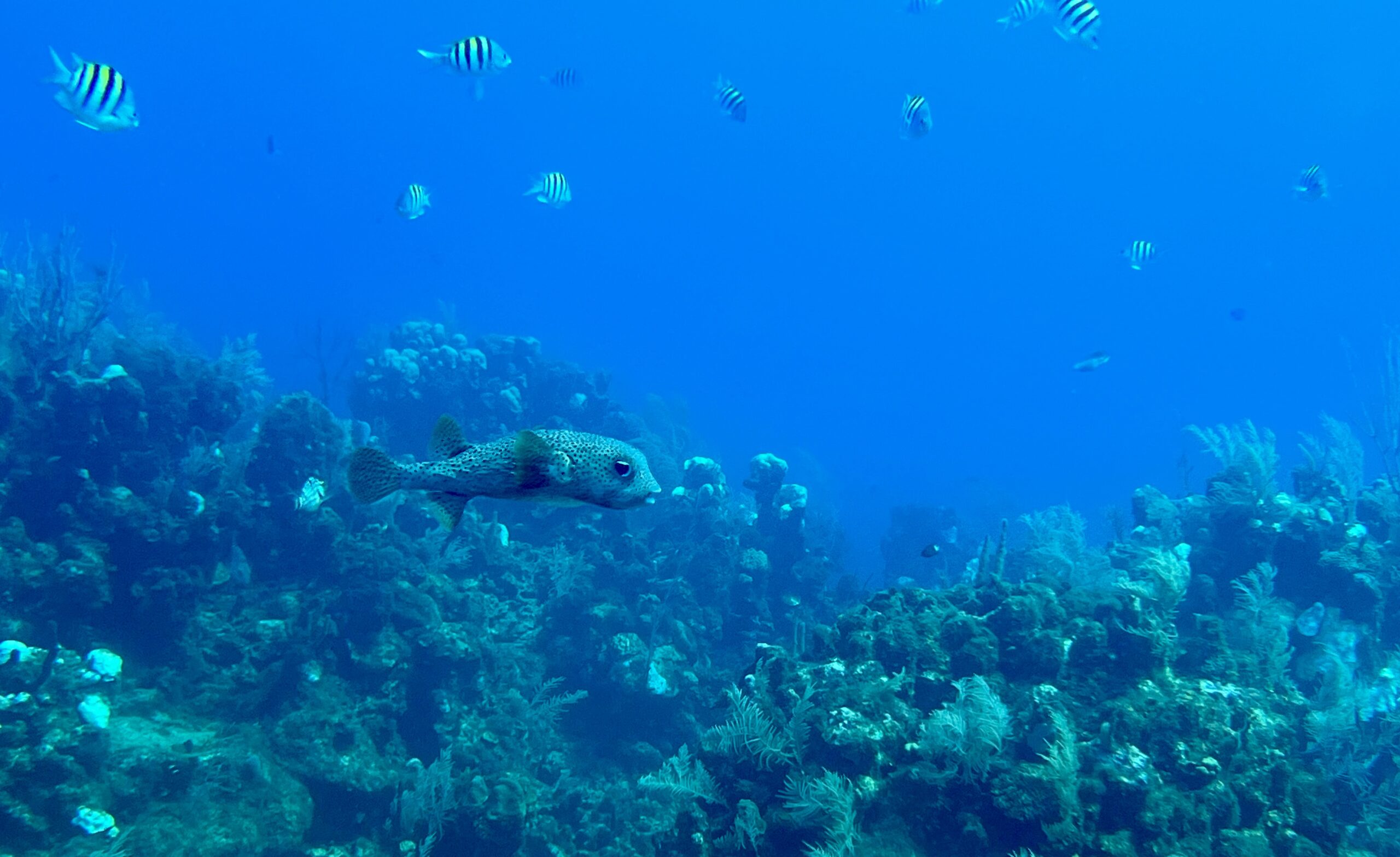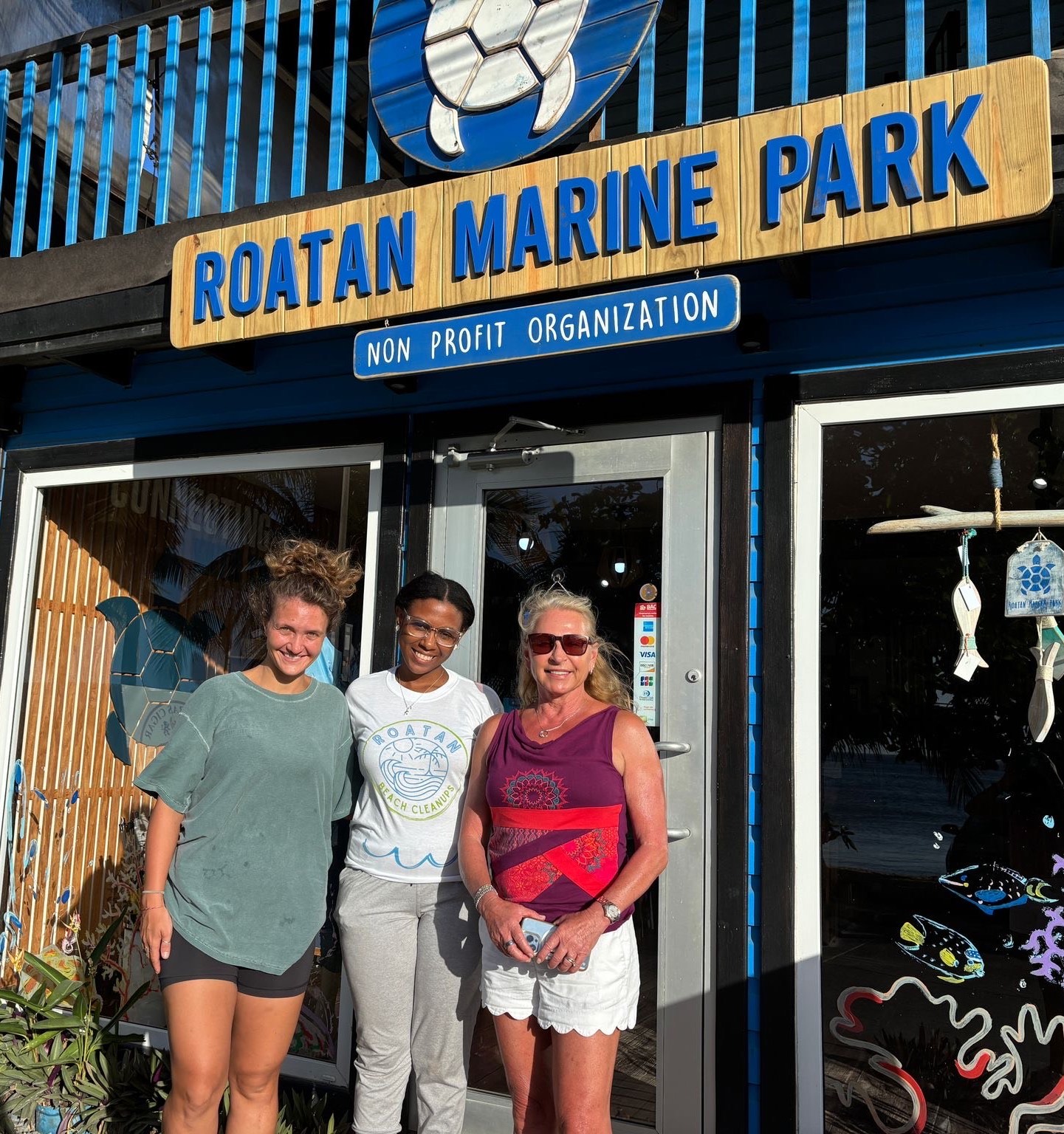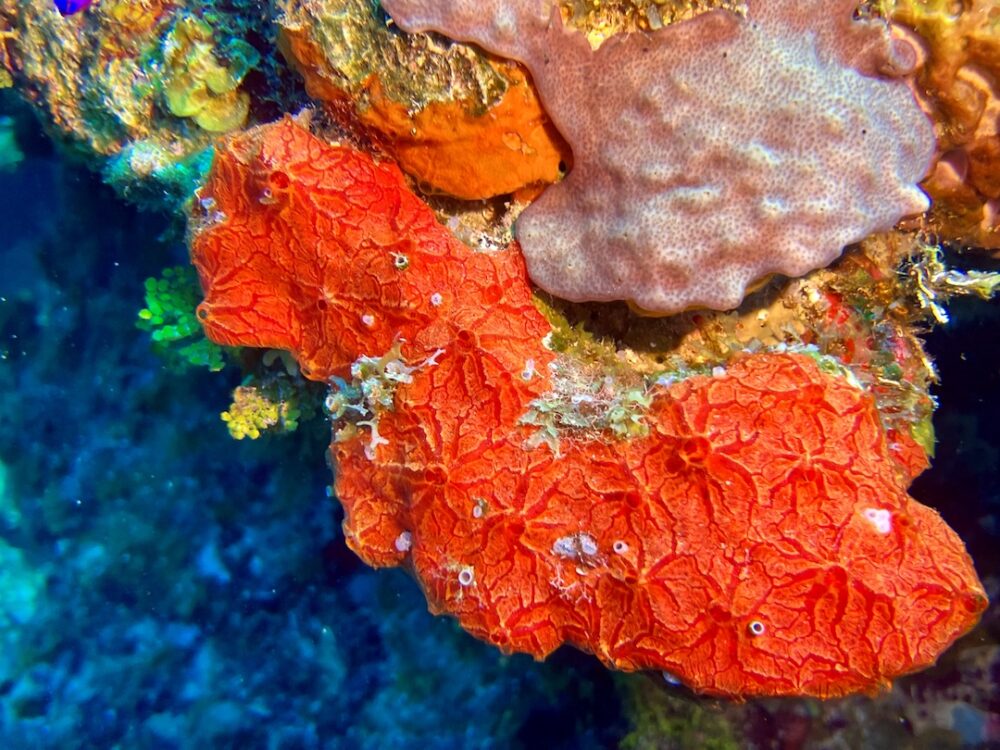Vicki’s Reflections from Roatan: Conservation, Collaboration, and the Banning Unsafe Sunscreens
As the Founder and Director of Inland Ocean Coalition, my recent trip to Roatan offered a powerful reminder of the importance of ocean conservation and the necessity for community collaboration.
My main goal in traveling to the island was to continue work on our joint initiative to implement a ban of sunscreens with harmful petrochemical ingredients on the island. I was grateful to balance a mix of exploration, diving among the vibrant Roatan Reef, and productive discussions about sustainability initiatives with local partners, members of the EcoSafe Sunscreen Coalition (made up of individuals from Bay Island Conservation Association, Roatan Marine Park, and Sun Divers), and stakeholders.

A key moment during my visit was attending the Tourism Sustainability meeting. In the meeting, I was able to better understand the community’s concerns about both the long-term health of the reefs and the economic implications of such a ban, which would mostly impact tourists. This a constant effort to maintain balance between conservation and and the economic needs of the community, which are largely dependent on tourism.
I also met with the Ecosafe Sunscreen Coalition to advance our efforts and lay the foundation for a public education campaign. It was encouraging to connect with local businesses committed to protecting the reefs and implementing the petrochemical sunscreen ban. In garnering backing for the ban in autumn 2024, we solicited over 50 letters of support from businesses on the island and over 1,000 signatures from Roatan residents. The signatures and letters were crucial elements to present the proposed ban to the island’s municipal government. In awaiting a decision from local authorities regarding the ban, the EcoSafe Sunscreen Coalition focuses on its next steps, which will proceed regardless of legal decision making: educating and raising awareness to both residents and tourists how harmful sunscreens impact the crucial reef environment.

In-depth discussions with key stakeholders in ocean protection, including experts in Marine Protected Areas (MPA) enforcement, researchers, and conservation non-profits, gave me a better understanding of how crucial collaboration is to effectively protecting the island’s marine ecosystems. Inland Ocean Coalition, while based in Colorado, can strengthen those efforts through offering support, building community trust, and strengthening connections. In the global ecosystem (and economy), inland areas are connected to coastal regions. And we all can have a role to play in ensuring the health of our oceans.
Looking ahead, I’m excited to continue our collaboration with partners in Roatan as part of Inland Ocean Coalition’s broader efforts to protect coral reefs, promote sustainable tourism, and bridge the gap between inland communities and ocean health. Through our work, we foster international collective action across sectors and regions, recognizing that the health of our oceans depends on the engagement and commitment of all communities—local and touristic, coastal and inland. Through Inland Ocean Coalition, I’m proud to be part of the EcoSafe Sunscreen Coalition efforts to drive meaningful change for a healthier ocean and a sustainable future. And I deeply value the friends and collaborators I have met in working towards this shared goal of environmentally supportive policy to protect the critical habitat of Roatan’s barrier reef.
And until the ban is passed — you may be asking what you can do to help protect coral reefs. Changing your sun protection habits is an easy way to make the ecosystem more hospitable to corals! We recommend wearing hats and sun protective gear, avoiding the sun during peak hours, and using mineral-based sunscreens when necessary. Stream2Sea sunscreen uses safer mineral ingredients, and has recently released a new CoralCare technology, made with minerals that support coral growth. Use the code “inland20” to kick back 20% of your purchase to IOC programs, including our partner project in Roatan.
 Vicki Nichols Goldstein is the Executive Director of Inland Ocean Coalition, which she founded in 2011 as Colorado Ocean Coalition. Vicki also co-hosts the Rising Tide Ocean Podcast, and has over 25 years of experience in ocean policy, advocacy, community engagement, program development, and environmental negotiation.
Vicki Nichols Goldstein is the Executive Director of Inland Ocean Coalition, which she founded in 2011 as Colorado Ocean Coalition. Vicki also co-hosts the Rising Tide Ocean Podcast, and has over 25 years of experience in ocean policy, advocacy, community engagement, program development, and environmental negotiation.

